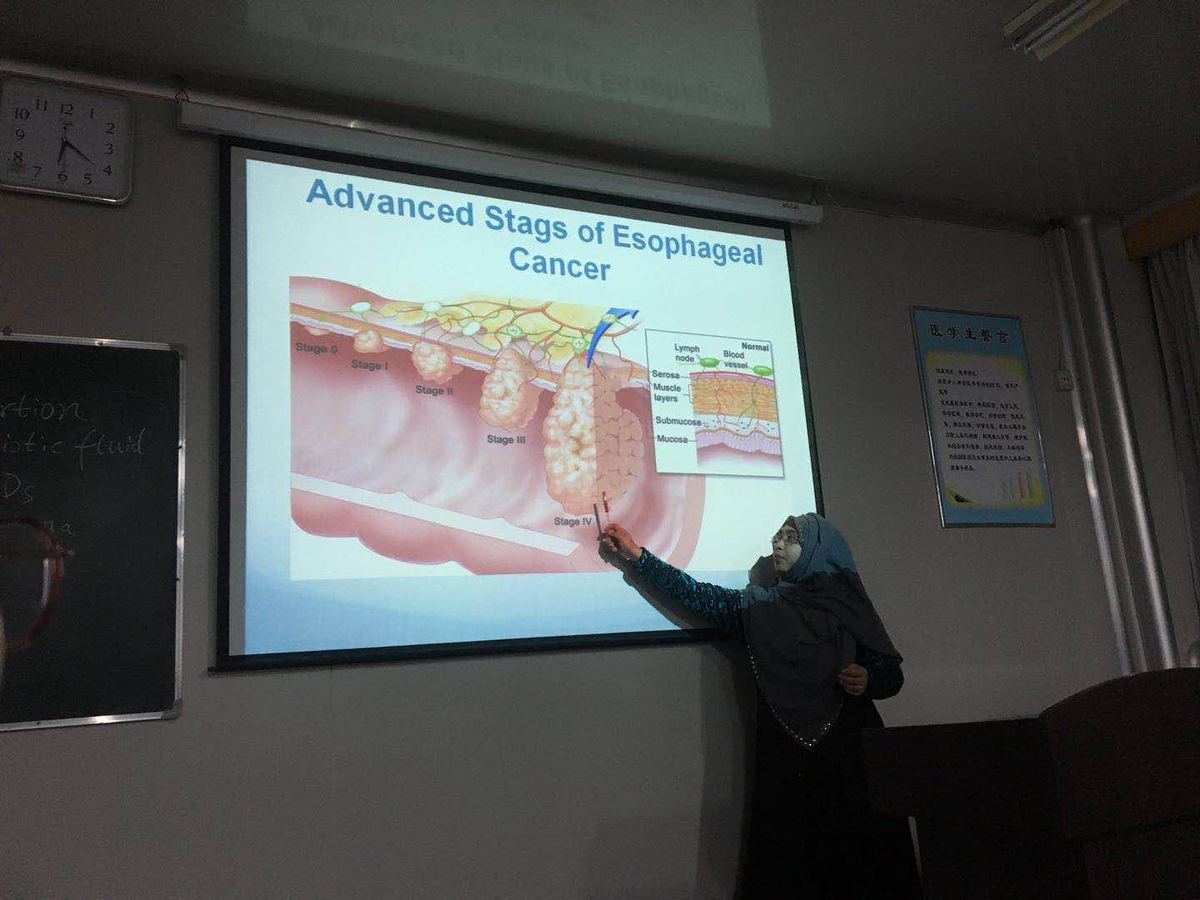BRI for better heath: Uniting against cancer


Every sixth death in the world is due to cancer, making it the second leading cause of death (second only to cardiovascular diseases). In 2016, 8.9 million people are estimated to have died from various forms of cancer, and the Institute for Health Metrics and Evaluation (IHME) put relatively small error margins around this global figure: the lower and upper estimates extend from 8.75 million to 9.1 million respectively. Given increasing population sizes, more aging populations and the progress against many other causes of deaths, the total number of cancer deaths continues to rise.
This is a very personal topic to many, as nearly everyone knows or has lost someone dear to them from cancer. It is defined by the National Cancer Institute (NCI) as a collection of diseases in which abnormal cells can divide and spread to nearby tissue. As this definition suggests, cancers can arise in many parts of the body and, in some cases, spread to other parts of the body.
Cancer's global death toll is expected to increase at an "alarming pace" over the next two decades, rising to 22 million new cases and 13 million deaths per year. That's the message of a new report from the International Agency for Research on Cancer (IARC), the arm of the World Health Organization that tracks the spread of cancer and releases fresh figures on the disease every five years. The latest edition, based on statistics from 2012, estimates that 60 percent of new cancer cases and 70 percent of cancer deaths happen in the developing world, reinforcing the divide between rich and poor nations. The highest cancer rate for men and women together was found in Denmark with 338 people per 100,000 being diagnosed in 2012. The age-standardized rate was at least 300 per 100,000 for nine countries: Denmark, France, Australia, Belgium, Norway, US, Ireland, South Korea and the Netherlands. In less-developed countries, cancer is even more likely to kill you. The countries with the highest cancer mortality rates in 2012 included Mongolia, Hungary, Armenia and Serbia.
With the increasing challenges related to healthcare, especially cancer, it is becoming more and more difficult for a single country to solve this gigantic issue of our time. Instead we must become more unified, which is why we should look to the Belt and Road Initiative, first proposed by President Xi Jinping in 2013, as a way forward.
The initiative -- which will transform trade and infrastructure for 65 countries by joining China to Central Asia, Europe and Africa by land and sea -- will also have significant implications for the research community and health corridor as well, thanks to the many healthcare projects proposed by countries involved in the initiative.
President Xi has already met with the World Health Organization (WHO) Director-General Margaret Chan in Geneva, Switzerland, Jan 18, 2017, and the two sides signed a memorandum of understanding to step up health cooperation under the framework of the China-proposed Belt and Road Initiative.
Inking this document showed China’s clear stance toward its role in future healthcare projects. According to the China bureau of statistics, the country has vast healthcare facilities with 8 million healthcare workers, including 3 million practicing doctors, 800,000 surgeons, 6 million nurses and 27,215 hospitals.
Countries involved in the Belt and Road Initiative can work together in the fight against cancer by sharing treatment methods such as chemotherapy or targeted therapies as well as resources, expertise and efforts to cope with the alarming situation.
After my home country of Bangladesh joined the Belt and Road Initiative, more doctors from Bangladesh and China have been involved in cooperation. Every year, large numbers of doctors come to China for clinical training. It is my hope that one day, we can establish a Chinese-run cancer center in my city.
In near future I would like to see the countries involved in the Belt and Road Initiative establish a cancer society, where we can team up to effectively manage cancer around the globe. I believe that with one vision, one road, one belt, we can bring the world one platform for a sound and healthy life.
Effat Un Nesa Efue is a PhD student on Radiation Oncology at Qilu Hospital affiliated to Shandong University Cheeloo College of Medicine with a CSC Scholarship.
The opinions expressed here are those of the writer and do not represent the views of China Daily and China Daily website.


































